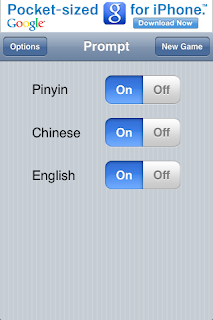What is the massive input strategy?
Massive input/output is essential opening the floodgates of a language and letting the information wash over you. It is not studying in the traditional sense-- no flashcards, textbooks or fancy iPhone Apps necessary. Massive input is about increasing exposure to a language during your daily routine and giving you a better feel for that language. It doesn't matter if you don't understand everything that you are hearing, the point is that your brain is still subconsciously processing some of the information.
This means trying to expose yourself to more of the language in its natural form. Music is, I think, the most obvious way to use this strategy, but we should really be using the same tactics with other materials as well: books, poems, movies, TV shows, radio broadcasts and blogs are all great ways increase your exposure to the language. By understanding that you are not going to understand everything from the beginning, it makes it easier to just let the language flood over you. Don't understand a word, a sentence, a paragraph... who cares cause you're not going to look it up anyway (at least not yet).
The reward doesn't come from "learning" new things, rather, massive input is about linking together everything you already know to estimate, guess, and predict the meaning of what you are being exposed to.
As my teacher metaphorically described, massive input is about building a skyscraper not a house. Massive input helps us build the "skyscraper" by stacking a ton of information higher and higher. Traditionally, studying and the material to study from is very controlled. Vocabulary and grammar patterns are presented systematically, which is good for building a foundation for a language (or a two story house), but there is nothing natural about it. However, it is also something that we should not, and cannot, ignore, it helps fills the gaps of information that are missing for our skyscraper... it is the cement in our metaphorical language building.
My own experience with massive input
Ever since that lesson I've been trying to apply this strategy to my own life to better understand what my teacher was saying. On top of reading a an article from a Chinese newspaper every morning during breakfast, and watching the news or movies when I have some time, I'm also currently reading two books in Chinese:《安德的遊戲》,a translated copy of Ender's Game , and《大小雞婆》. Since Ender's Game is a book I have read quite a few times in English I'm not looking anything up... ever. I'll probably go back through once I'm done to start and cement the gaps in the language, but right now I'm just reading for pleasure. It was frustrating at first, but after a while I started to get a feel for the text and the translation a way that looking up every other word cannot provide.
With 《大小雞婆》, a book originally written in Chinese, I'm reading it chapter by chapter. Instead of stopping to look up words that I don't know I'm just highlighting them and making guesses about the meaning based on context. Once I'm done with the chapter I will go back and check the dictionary for every word that I highlighted. I've found that this process takes about an hour a day.
More than anything I've found that my reading comprehension is increasing at a very rapid pace. I'm beginning to notice how certain nuances contained in grammar patterns, simply because I'm seeing them in a space that isn't controlled by a textbook. Since I don't worry (as much) about individual characters or phrases, I'm able to focus on the overall meaning of a text without too much effort. Hopefully this should pay off greatly when reading academic articles or taking any kind of standard test in Chinese.
Do any of you use a similar strategy with your language learning process? If so please leave a comment below.




